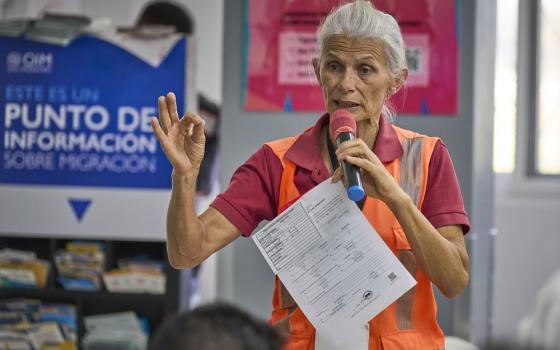

“If today you hear God’s voice, harden not your hearts” (Psalm 95).
St. John XXIII
Rom 1:1-7; Luke 11:29-32
Today’s liturgy commemorates St John XXIII. He was elected pope in 1958 as a short-term placeholder after the long reign of Pius XII, but surprised everyone by convening Vatican II (1962-1965), a worldwide gathering of bishops that sought to bring basic reforms to the governance and ministry of the church. In hindsight, many of the changes begun by Vatican II seem obvious, to create a more open, pastoral church compared to the increasingly isolated fortress of truth that had cut off church participation in a rapidly changing world. Yet, conservative forces resisted reforms from the start to the point of a schismatic breakaway and bureaucratic foot-dragging still evident today.
Pope John only lived to preside over the first session of the Council, but his prophetic vision had an urgency as he pushed the Vatican establishment not to let the church become a museum or focus more on judgment than mercy, themes Pope Francis has taken up 60 years later in his bid for a more synodal and less hierarchical church. There must have been days when both reforming popes have said to themselves, “Why don’t they get it? Isn’t it obvious that the church must change to remain relevant to carry out her mission?”
In today’s Gospel, Jesus faces resistance and indifference from people who knew the scriptural promises and prophetic warnings in the signs of the times. When people asked for more signs, Jesus responded that the only sign they would get was the sign of Jonah. Jonah, the reluctant prophet who did not want the hated Ninevites to be spared, barely preached his message when the entire nation repented. If these pagans could hear God’s invitation, Jesus implied, why won’t God’s chosen people listen and be saved? He added the example of the queen of the south who accepted Solomon’s wisdom, while an even greater source of wisdom was speaking to their generation. Wasn’t it obvious that God was offering them salvation in Jesus? He would arrive in Jerusalem near the end of his ministry and weep over the city for its blind rejection of the obvious.
St. Paul also grieved over the obstinacy of his own Hebrew brothers and sisters, who rejected Jesus while the pagans were flooding into the church. He had repeatedly made the case that Jesus fulfilled the Law and the Prophets, yet his own people refused to accept the grace of salvation.
We do not lack examples of people resisting the obvious, whether it involves climate change or vaccinations to end the pandemic or the rabid partisanship that threatens institutional stability itself. “Good Pope John,” despite deep resistance from within his own inner circle, went about his prophetic role with calm assurance that God would bless the People of God in good time. Pope John’s faith is affirmed in the efforts of Pope Francis.
Advertisement





